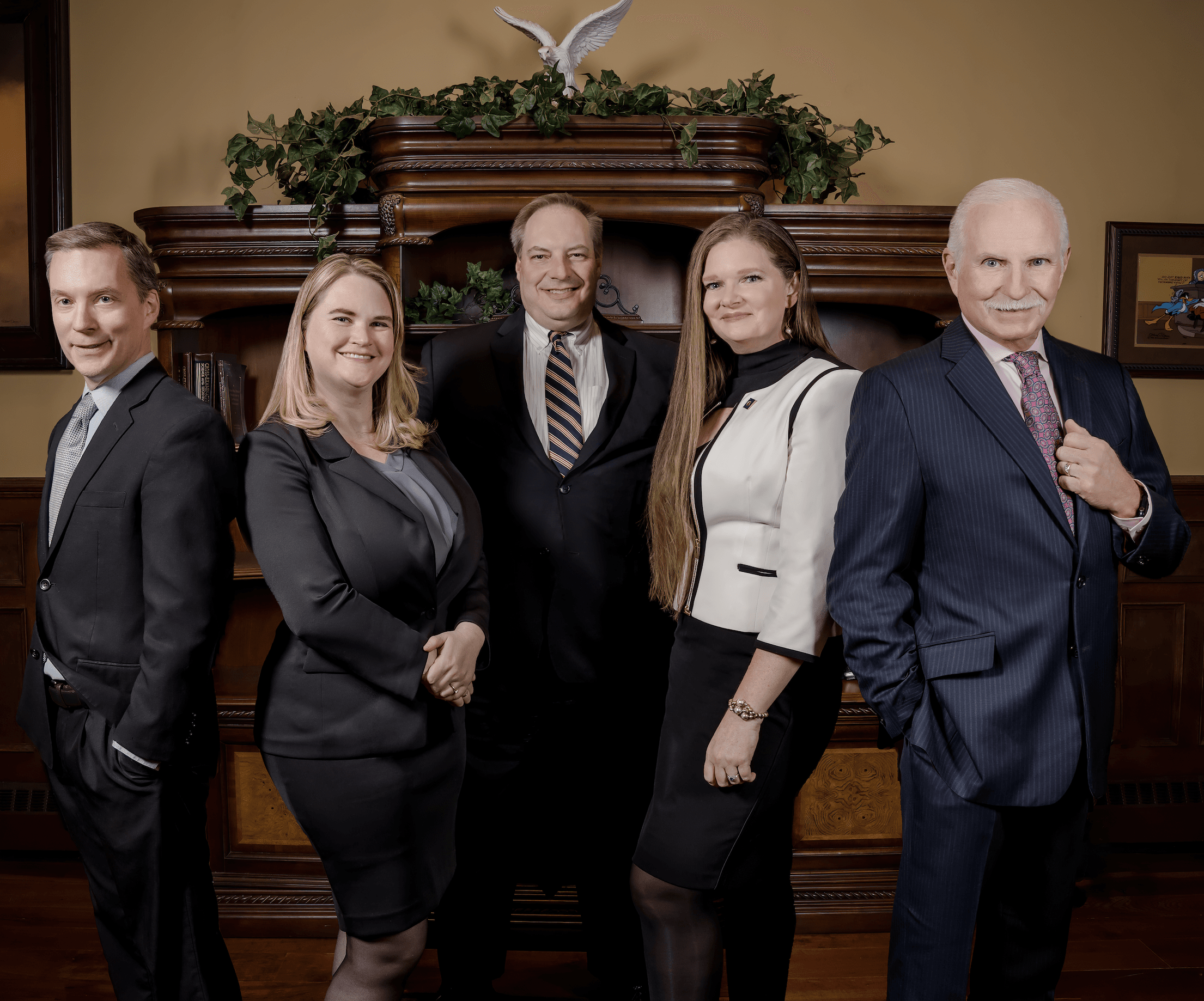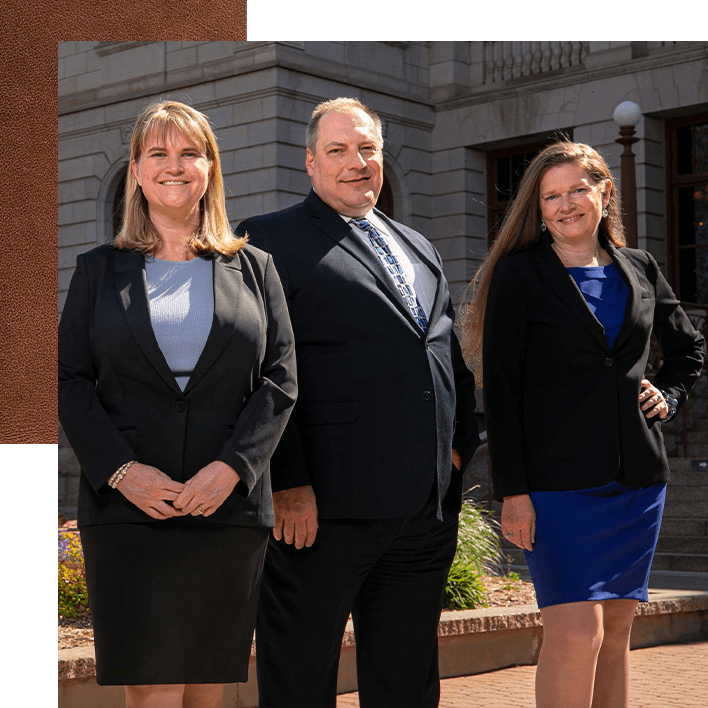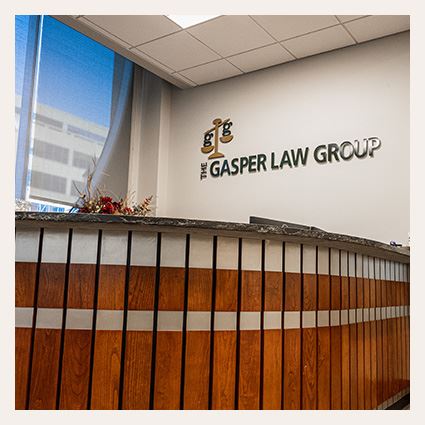

High Asset Divorce Attorneys Colorado Springs Divorce Lawyer
The high asset divorce attorneys at The Gasper Law Group understand your unique needs and can provide the legal guidance necessary to achieve your goals. Our team is skilled in many aspects of domestic relations law and can help you navigate the complicated legal landscape.
Couples facing divorce who have significant assets are faced with a unique set of challenges. High earners or those who have been married for a long time and have accumulated significant assets must by agreement or litigation divide their financial matters in a high asset divorce. There are three general issues that bear consideration in this context. These are: Property Division, Spousal Maintenance, and Child Support.
What is a High Asset Divorce?
A high asset divorce is a divorce involving significant assets, which can include real estate, investments, business interests, retirement accounts, valuable personal property, and more.
In such divorces, the complexity and value of the assets involved often require special attention and expertise to ensure a fair and equitable division. High asset divorces can involve various legal, financial, and tax considerations that may not be present in typical divorces.
Prenuptial Agreements in High Asset Divorce
A prenuptial agreement can address numerous aspects of high asset divorce ahead of time, such as property division, spousal maintenance, and debt. However, prenuptial agreements cannot affect child support or visitation, called parenting time in Colorado.
It is in any divorcing couple’s best interest when a prenuptial agreement is involved to obtain the services of an experienced divorce attorney. Although a prenup sets the groundwork, an attorney can work towards ensuring your interests are addressed throughout the case.

(719) 212-2448 or complete our contact form.
Property Division in Colorado
In many high asset divorce cases there are types of assets not typically found in other cases. some examples are:
- Business Interests
- Stocks, Bonds, or Investment Portfolios
- Deferred Compensation Entitlements
- Performance-Related Bonus Payments
In the case of business ownership or partnership, it is very important that your attorney get a qualified forensic accountant on board early in the case to make sure this important part of your case is handled properly. In many high asset cases, the business is the most valuable asset the parties have. Decisions as to how it will be divided are complex and have long-reaching consequences. For instance, if the assets being considered have delayed compensation—meaning they would not vest until after certain conditions are met—it is possible that those assets would not be divided up if they were not fully vested during the marriage. Many factors must be considered when high-value assets are on the line.

Spousal Maintenance
Colorado law provides a formula for calculating spousal maintenance (previously called alimony). This formula is applicable to couples whose total annual combined income is under $244,000.00. In high asset cases this usually means that the amount is up for either agreement or order of the Court. The Court can consider any relevant information in making its decision on the amount and duration of spousal maintenance.
If you and your spouse earn over $244,000.00 per year combined, the question of spousal maintenance becomes more complex. It is crucial that you have an attorney experienced with this issue to ensure a good result for you.
-
Committed to the Community
-
Helping People First
-
Offering Payment Plans

-
"Caryn Adams took such good care of me"Caryn Adams took such good care of me threw out my legal situation and was constantly keeping me in the loop! Couldn’t ask for better representation!- Ryan L.
-
"They answered every call, every email from me in the long process of this probate and they all was very professional"
I really want to Thank Jack, Emily, and Therese for all their hard work taking care of my sister Pamela Bellos’s estate , they answered every call, every email from me in the long process of this probate and they all was very professional
- Karen B. -
"From the start, they treated me incredibly well and were very open about everything from my situation."The Gasper Law Group was fantastic. From the start, they treated me incredibly well and were very open about everything from my situation. They were incredibly attentive to me and my case and made sure I fully understood everything while supporting me in every way they could. Caryn was AMAZING in handling my case. Her knowledge, confidence, and attentiveness were second to none. I would recommend them to anyone for any situation.- Jason E.
-
"I highly recommend that you not waste your time hiring other attorneys and hire the Gasper Law Group."After an absolutely crazy incident that could not have been seen almost anywhere besides a movie. I received some serious charges and was in search of an attorney. They would not only represent me but need to do the right thing because it's the right thing...- Lance F.
-
"They took care of my case in a very timely manner and made it feel like my traffic ticket was their number one and only priority."Caryn Adams, Stacey Sadler and the rest of the team at the Gasper law group are an amazing, courteous, compassionate, and very helpful group of talented individuals. I was in a bind and during my consultation I explained my situation and they went above and beyond my expectations. They took care of my case in a very timely manner and made it feel like my traffic ticket was their number one and only priority. I have never been treated with such respect and compassion. I definitely recommend talking to them about any of your legal needs.- Scott R.
-
"I highly recommend you use them to make your life easier. I couldn’t ask for a better team!"I used the Gasper Law Group when I was going through my divorce and child custody case. I got the outcome I wanted, Carrie Kelly and Kimberly Lucas made my life 10x easier considering i didn’t know what I was doing. They were patient, and caring and even made me laugh a few times. I highly recommend you use them to make your life easier. I couldn’t ask for a better team! I’m now happily divorced and got my kiddo 50/50! You guys rock and if anything comes up in the future, I’ll be sure to use you guys! Thanks so much gasper law group for the fast and professional services!- Micheala E.
-
"If you need any Legal advice or assistance reach out to the Gasper Law Group. 5 star service."Gasper Law Group is great to work with. I recently did Estate Planning and they were awesome. Explained everything thoroughly. Emily, Jack, Therese , Holly, and Emily are all very professional. If you need any Legal advice or assistance reach out to the Gasper Law Group. 5 star service.- Ruby D.
-
"Don’t have much hope? Leave it to Caryn she will change that."I dug myself a deep hole and didn’t have much hope or luck with the attorney I used before. I called Gasper law group and Caryn Adams was my attorney that took charge of everything. I couldn’t have asked for anything better the outcome she made possible is everything I wanted. She is great at her job and takes cases seriously … don’t have much hope leave it to Caryn she will change that. Thanks Gasper law group you’re the best!- Mike L.
Hidden Assets in High Asset Divorce
Although most people usually operate in good faith when getting divorced and provide all financial information during the proceedings, there is always the possibility one of the spouses could be using the business to hide assets before the divorce. This might be done for a number of reasons, such as having less property to divide or to having fewer personal expenses accounted for in their records.
When determining property to be evaluated in a high asset divorce, your attorney will likely involve a forensic accountant in your case in order to find any missing assets. Although they can provide the investigatory skills needed to find the money, a forensic accountant reduces the total cost and, unlike an attorney representing someone in a divorce, can testify on their behalf. If you suspect your ex-spouse is using a business or other means to hide assets in divorce, contact an attorney right away.
Qualified Domestic Relations Orders (QDROs) in Colorado Divorce
Attorneys in Colorado handling divorce cases can utilize a Qualified Domestic Relations Order (QDRO) as required by the U.S. Internal Revenue Service (IRS) in order to transfer jointly shared accounts from one type of account to another without risking the asset be taxed out. If you and your spouse share retirement funds, mutual fund accounts, or other types of investments you need to divide up, your attorney will likely involve a QDRO in order to minimize the impact on your long-term investment plans.





Child Support in High Asset Divorce
Colorado law provides a computation for child support, much like spousal maintenance discussed above. The same principle applies—that being in most high asset cases, the parties’ combined income exceeds the computation and therefore the issue is up for agreement or court order. In addition, children involved in the divorce are entitled to a standard of living approaching what they would have had if their parents had remained married. There may be private school costs, activities, family vacations, and other substantial expenses for the children.
The Judge hearing your case has wide discretion to order the division of the children’s expenses between the parties. In a high asset case, the Judge will likely order child support along with other orders relating to the payment of certain expenses. Typically, private school education is divided between the parties if the children have previously attended private school.
The Judge can order the expenses divided equally, proportionate to each party’s percentage of total income, or in some other manner. Because of the complexity of the issues presented in high asset cases, it is important that you have an attorney experienced in handling these issues.
One of the Colorado Springs divorce lawyers at Gasper Law Group will be glad to meet with you to discuss the specifics of your case. Contact us today to schedule a consultation.

Why Choose The Gasper Law Group?
-
Offering Payment Plans
-
Helping People First
-
Committed to the Community